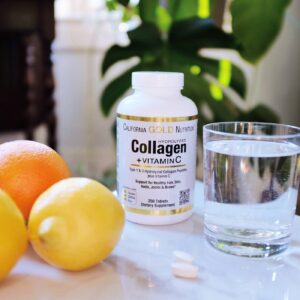Depression is a serious mental health condition affecting millions of people worldwide. It can be debilitating, affecting every aspect of life. While professional help is recommended for those suffering from depression, there are also natural home remedies that can help alleviate symptoms. Here are some step-by-step home remedies for depression:
Exercise
Regular exercise is an effective way to reduce symptoms of depression. Exercise stimulates the release of endorphins, chemicals in the brain that improve mood and reduce feelings of pain and stress. Additionally, exercise increases the production of serotonin and dopamine, neurotransmitters that regulate mood and emotions. Regular exercise can also help improve self-esteem and provide a sense of accomplishment, leading to a more positive outlook. Finally, exercise provides a distraction from negative thoughts and can promote social interaction, both of which can help reduce symptoms of depression.
Step-by-step: Start with 10-15 minutes of light exercise, such as walking or yoga, and gradually increase the duration and intensity. Aim for at least 30 minutes of exercise most days of the week. (1)
Healthy Diet
A healthy diet can help improve mood and alleviate depression symptoms because certain nutrients and minerals are essential for proper brain functioning and mood regulation. For example, a diet rich in whole grains, fruits, vegetables, lean protein, and healthy fats provides the body with essential nutrients like B vitamins, magnesium, and omega-3 fatty acids, which are known to support brain health and reduce inflammation. On the other hand, a diet high in processed foods, sugary drinks, and unhealthy fats can lead to inflammation and oxidative stress in the body, which is linked to an increased risk of depression and other mental health problems. Additionally, eating a healthy diet can improve overall physical health and energy levels, contributing to a more positive mood.
Step-by-step: Eat a balanced diet with plenty of fruits, vegetables, whole grains, lean protein, and healthy fats. Avoid processed foods, sugary drinks, and alcohol. (2)
Meditation
Meditation is a mindfulness practice that focuses on the present moment without judgment. It can help reduce stress and improve mood by promoting relaxation and increasing self-awareness. Meditation can train the mind to handle negative thoughts and emotions better, leading to a more positive outlook and greater emotional stability. Additionally, meditation has been shown to reduce the levels of stress hormones in the body, such as cortisol, which can contribute to symptoms of depression and anxiety.
Step-by-step: Find a quiet, comfortable place to sit or lie down. Close your eyes and focus on your breath. If your mind wanders, gently bring your attention back to your breath. Start with a few minutes and gradually increase the duration over time. (3)

St. John’s Wort
St. John’s Wort is effective in treating mild to moderate depression. St. John’s Wort is an herb commonly used for its medicinal properties. It is also known as Hypericum perforatum and has yellow flowers and small, oblong leaves. The herb contains active compounds such as hypericin and hyperforin, which have been shown to have antidepressant and anti-inflammatory effects. St. John’s Wort is often used to treat mild to moderate depression and anxiety. It is available in various forms, including capsules, tablets, teas, and tinctures. However, it can interact with certain medications, so it is important to consult a healthcare professional before using it.
Step-by-step: Take 300mg of St. John’s Wort extract, standardized to contain 0.3% hypericin, three times daily. It may take several weeks to see improvement. (4)
Buy St. John’s Wort from Amazon now.
Omega-3 Fatty Acids
Flaxseed and walnuts are sources of omega-3 fatty acids, which are essential for brain function and have been shown to alleviate symptoms of depression. These fatty acids are vital for producing and functioning neurotransmitters that regulate mood in the brain. Some studies have indicated that individuals with depression may have lower levels of omega-3s in their blood, and increasing omega-3 intake by consuming foods like flaxseed and walnuts can potentially improve mood. In addition, fatty fish such as anchovies, herring, mackerel, black cod, salmon, sardines, bluefin tuna, whitefish, striped bass, and cobia are also high in omega-3 fatty acids and have been shown to have similar benefits.
Step-by-step: Incorporate fatty fish, flaxseed, and walnuts into your diet. Take a fish oil supplement with 1-2 grams of EPA/DHA daily. (5)
Buy Flaxseed and Walnuts from Amazon now.
Disclaimer: While these home remedies can help alleviate depression symptoms, it is important to consult a healthcare professional if the depression persists or worsens.
Sources
(1) Craft, L. L., & Perna, F. M. (2004). The Benefits of Exercise for the Clinically Depressed. Primary care companion to the Journal of clinical psychiatry, 6(3), 104-111.
(2) Opie, R. S., O’Neil, A., Itsiopoulos, C., & Jacka, F. N. (2015). The impact of whole-of-diet interventions on depression and anxiety: a systematic review of randomised controlled trials. Public health nutrition, 18(11), 2074-2093.
(3) Khoury, B., Lecomte, T., Fortin, G., Masse, M., Therien, P., Bouchard, V., … & Hofmann, S. G. (2013). Mindfulness-based therapy: A comprehensive meta-analysis. Clinical psychology review, 33(6), 763-771.
(4) Sánchez-Villegas, A., Delgado-Rodríguez, M., Alonso, A., Schlatter, J., Lahortiga, F., Serra-Majem, L., & Martínez-González, M. A. (2009). Association of the Mediterranean dietary pattern with the incidence of depression: the Seguimiento Universidad de Navarra / University of Navarra follow-up (SUN) cohort.
(5) Omega-3 Fatty Acids: https://www.nccih.nih.gov/health/omega3-supplements-in-depth







